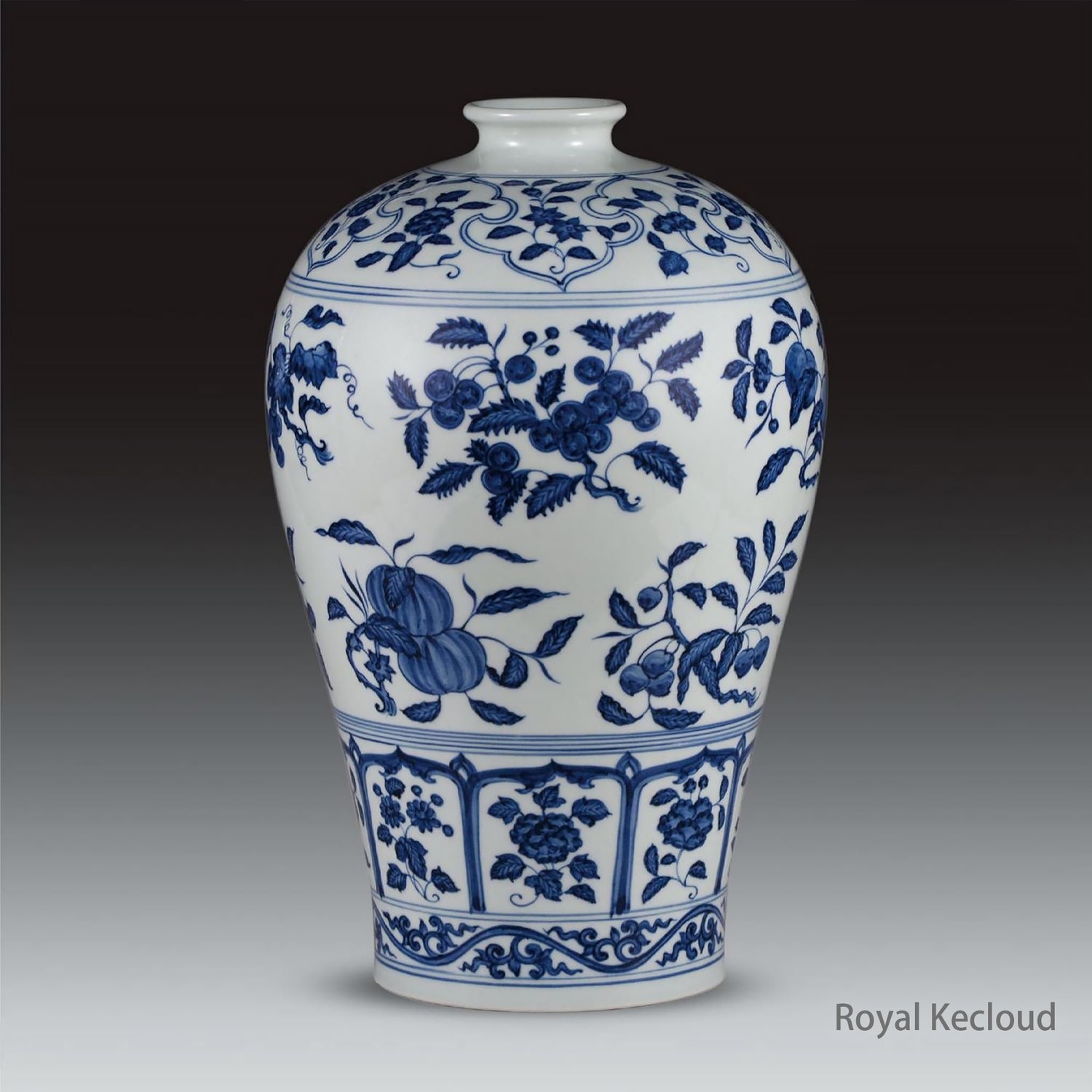
In the Ming Dynasty, ceramics from Jingdezhen were predominantly known for blue and white porcelain, but they also excelled in various other types. Initially, copper-red glazed ceramics were of the highest quality, while blue and white represented the pinnacle of Chinese blue and white porcelain, especially during the Yongle and Xuande periods, with remarkable production volume and quality.

During the Jin Dynasty, the overglaze red colors of Ding Kiln and the polychrome overglaze of Cizhou Kiln marked the primitive stage of overglaze decoration. In the Chenghua period, artisans combined overglaze and underglaze decoration to create doucai ware. Doucai is a decorative technique that combines overglaze and underglaze colors, famously seen in Chenghua chicken cups.

The Hongzhi period introduced low-temperature yellow glaze, while the Zhengde period featured peacock green glaze. The Jiajing period saw the development of wucai (five-color) ceramics and blue and white wucai, all representing the "masterpieces" of the Ming Dynasty.
